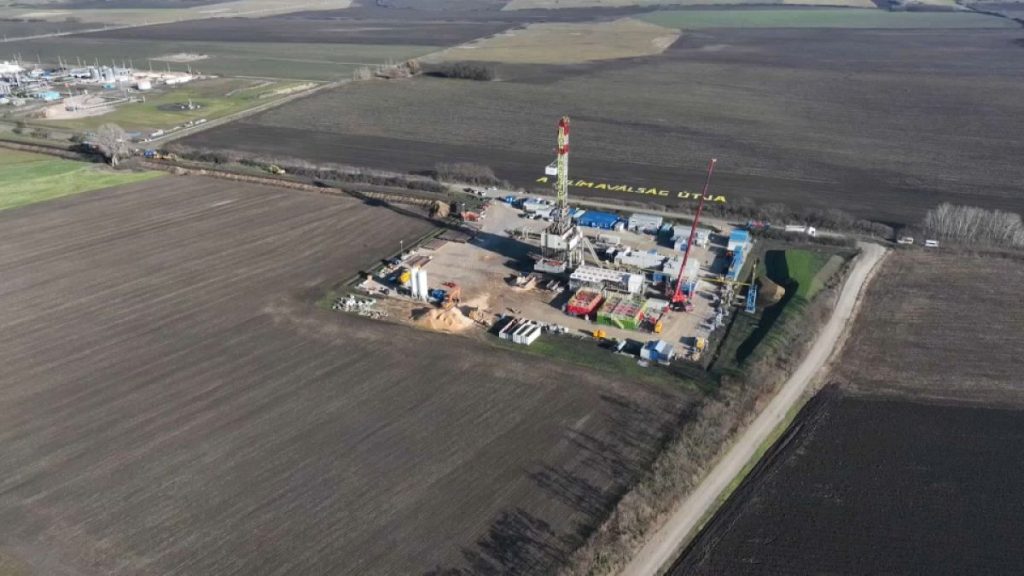Summarize this content to 2000 words in 6 paragraphs
The water-intensive gas extraction technology – known internationally as fracking – has been banned in several European countries, but is still used in Hungary.
On 1 December, activists from Greenpeace Hungary placed a 23-metre-long “Stop fracking” sign on a drilling rig in the Nyékpuszta gas field. They also warned that climate change means that natural gas production and use must be stopped as soon as possible, and named the road to the rig “the climate crisis road”. What exactly is ‘fracking’ technology?”They drill down several kilometres into the ground, into the rock, and then they continue drilling perpendicularly, so they drill sideways, and into this hole they push the fracking fluid, which is mostly water and sand, but it contains acids and biocides that prevent algae growth, and experience shows that there is no guarantee that these will not escape into the environment,” explained Gergely Simon, regional chemicals expert at Greenpeace Hungary.Experience shows that in many countries these substances, including the carcinogen benzene, have been found in groundwater in the surrounding area and may even have leaked into the air: it is no coincidence that the process has already been banned in several European countries. Germany, France, the Netherlands, Slovenia and Bulgaria have all banned it or imposed a moratorium. In Hungary, however, it is still used, for example in the Corvinus project in Nyékpuszta. Greenpeace has carried out thermal camera measurements in the area and has also exposed several instruments measuring air pollution. The validity of their results is disputed by the gas trader concerned.”Of course, we reported the pollution to the authority, and MVM reacted, trying to refute our latest measurements, saying that there are other accredited methods for measuring”, said Gergely Simon. “Obviously we, Greenpeace, have the possibility to put passive measuring devices on site. We left them there for 13 days and we found that benzene was almost double the one-day limit in 13 days at one point, but also exceeded it at another point. So, if we exceeded the one-day limit in 13 days, we were guaranteed to exceed the limit for one day or more,” he added. Greenpeace Hungary is calling for the Hungarian government to give much more support to renewable energy instead of climate-damaging technologies.
Keep Reading
Subscribe to Updates
Get the latest creative news from FooBar about art, design and business.
© 2025 Globe Timeline. All Rights Reserved.



